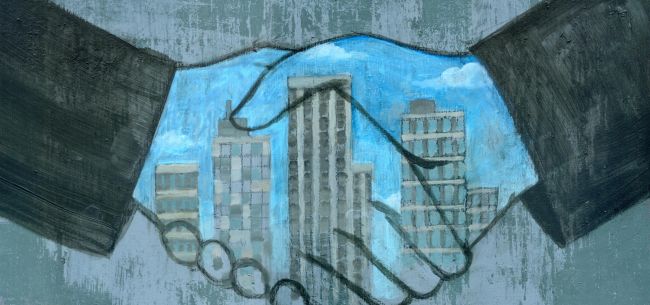Three months after the first announcement of the negotiations, Johnson & Johnson (NYSE: JNJ) finally defeated Sanofi and married the Swiss biotech company ActelionSIX (ATLN) for $30 billion in cash. . The transaction price is a 77% premium to the closing price of Actelion the day before Johnson and Johnson announced the acquisition of Actelion.
Johnson & Johnson hopes that Actelion will complement the Janssen pharmaceutical business. This transaction, in the external view, is a strong student with a market value of more than 300 billion US dollars. The important layout for seeking further growth under the huge volume is also a key step in gradually increasing the competitiveness of innovative drugs in the pharmaceutical field in recent years.
The more realistic value of the acquisition of Actelion for Johnson & Johnson in the near future is to fill the gap that star medicines may lose when they face the competition of generic drugs after the patent expires. In the long run, it is a powerful complement to Johnson & Johnson's product portfolio in the field of rare diseases.

30 billion cash acquisition
On January 26, 2017, Johnson & Johnson and Acte-lion announced that they have reached a final deal agreement. Johnson & Johnson will launch a full cash offer in Switzerland to acquire all issued shares of Actelion for US$280 per share. . The transaction was unanimously approved by the board of directors of the two companies.
On November 25, 2016, Johnson & Johnson announced that it was negotiating an acquisition with Actelion. According to media reports, the earliest quoted Johnson & Johnson was interested in the acquisition of Acte-lion when the offer was $17 billion. On December 6, Bloomberg reported that Sanofi also initiated an offer to Acte-lion. On December 13, Johnson and Johnson announced the end of negotiations with Actelion, saying that the two sides could not reach an agreement. On December 21, Johnson & Johnson announced that it was in exclusive negotiations with Actelion.
At the time, when both Sanofi and Johnson and Johnson extended an olive branch to Actelion, both parties told the Economic Observer that there was no more information to share or not to comment.
On January 26 this year, Johnson & Johnson released a message on the official website that it had reached a final acquisition agreement with Actelion, and Johnson & Johnson had a wish of 30 billion. Since November 15, Actelion's share price has risen from about 150 Swiss francs per share to about 260 Swiss francs. The Wall Street Journal has quoted people familiar with the matter, and Sanofi’s offer is up to $30 billion.
Actelion is a biopharmaceutical company that emerged as a rare disease drug. It was founded in 1997 and was on the Swiss Stock Exchange IPO in 2000. Today, it has marketing and sales subsidiaries in more than 30 countries around the world, with a valuation of nearly $20 billion.
Looking back at Actelion's history, it has been unique in the field of pulmonary hypertension since its inception. Actelion has mature products in oral, inhalation and injection. Currently, it has listed 5 products, which are the main profit sources of Actelion.
Launched in December 2001, TRACERERR (BOSEN-TAN) is the world's first marketed pulmonary hypertension drug and the pioneer of Actelion's profitability. In 2009, Bosentan sales ranked first in the pulmonary hypertension drug market, accounting for half of the market.
But Bosentan expired in 2015. However, Actelion's product in the field of pulmonary hypertension is also available as OPSUMITR (MACI-TENTAN), which was launched in 2013. Oral UptraviR (selexipag) was also launched in 2016.
Imported Bio-based Plastic Additives
Plastic additives, also known as plastic additives, are compounds that must be added to polymers (synthetic resins) to improve their processing properties or to improve the properties of the resin itself. For example, in order to reduce the molding temperature of PVC resin, to make the product soft and added plasticizer; Another example is to add foaming agent in order to prepare light weight, anti - vibration, heat insulation, sound insulation foam plastics; The thermal decomposition temperature of some plastics is very close to the molding temperature, and the molding cannot be done without adding heat stabilizer. Therefore, the plastic assistant agent occupies a particularly important position in the plastic forming process. A class of auxiliary agents for plastic molding products, including plasticizer, heat stabilizer, antioxidant, light stabilizer, flame retardant, foaming agent, antistatic agent, mildew agent, colorant and whitening agent (see pigment), filler, coupling agent, lubricant, mold release agent and so on. Colorants, brighteners and fillers are not special plastics chemicals, but the general use of materials.
Imported Bio-Based Plastic Additives,Hobum Elo Plasticizer,Arkema Elo Plasticizer,Polar Elo Plasticizer
Xingbang High Molecular Materials Co., Ltd. , https://www.chemicaladditive.com